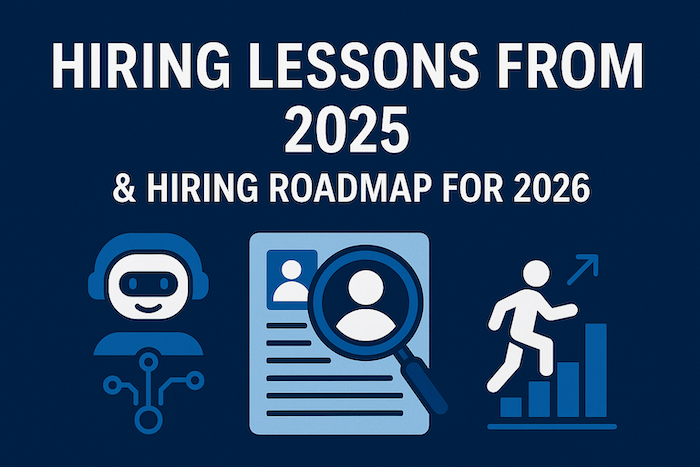Tips on How to Improve Your Job Interview Skills

How can I improve my interview skills?
By Stuart Mease, Joanie Belo, Devin Jones
The holiday season is here and graduation is right around the corner. If you are a recent graduate who is still on the job search and just haven't gotten that offer yet, you might be asking yourself, “Is there anything that I can be doing better?” We know that handling rejection on the job hunt can be tough. We find that most often it can be a simple solution to tweak your approach. Below are a couple areas that we think could help level up your interview strategy!
Clearly articulate your job search:
The employment market can be competitive, so it is important to set yourself apart from other candidates. One mistake that entry-level candidates can make is being too niche or even too wide with their job search. Hiring managers are attracted to entry-level candidates who are open minded and flexible with their job search while also being clear about their long term plan. Go into the job search with an open mind and understand that you have to prove yourself first.
Stand out on paper:
The first step to being invited to an interview is having your resume reviewed. Most resumes are looked at for an average of 15-45 seconds. That's pretty quick! Recruiters' eyes are trained to look at education, transferable soft skills, hard skills, and previous employment. Make it easy on the recruiter and clearly convey your key experience and skills. Scratch the fluff! No colors, no pictures, no crazy font. Keep it simple and straight to the point. You can't go wrong with a classic resume. For more tips visit our ROCStar Resume Template Blog here.
Speak the language of a hiring manager:
We find that when we ask candidates, “What are you looking for in your job search?” we often receive responses such as, “flexible schedule, hybrid structure, or a fun and collaborative office culture.” While these things are certainly important, it is not always received well on the employer side. As an entry-level candidate you want to shift your responses to skills or duties that you are looking to obtain. For example, “I am looking for more office experience in the realm of customer service and administrative tasks.” Clearly articulating what you are looking for assists hiring managers in understanding your motivations thus aiding in quicker hiring decisions.
Be aware of what you share:
When under pressure during an interview it can be easy to ramble or overshare. It is important to stay professional at all times. Most hiring managers do not necessarily want to hear about your significant other, your pets, or your weekend plans! Oversharing can be viewed as a sign of poor judgment or lack of professionalism. Stay focused on selling your skills and ability to learn.
Manage your expectations:
Finding the balance of your job search is key to making yourself employable. We understand that you have goals and dreams and we want you to chase them! We also encourage you to look at your dream job on a longitudinal basis and begin to pull apart the stepping stones that you need to get there. For example, if your dream job is to get into HR and you don't quite have experience yet, start by building your office experience with any industry in a professional customer service or administrative position. This will allow you to learn basic office skills that are vital to a HR position's requirements.
Emphasize your commitment:
Hiring managers are mostly looking to invest in a recent grad for a long term fit. If your long term plan does not align with the company you are interviewing for, this may place you lower on the list of preference. Find the balance between expressing your long term career goals while understanding that your first job out of college is a stepping stone towards that dream job.
It's a numbers game!
We understand that applying to jobs can feel like a full-time job, but make it easier on yourself! Be more open minded with those first applications you are sending out. You don't have to accept a job after applying, that's what the interview process is for! You may surprise yourself by interviewing with companies you may not have otherwise considered. There are thousands of opportunities, big and small. As a recent graduate your goal is to build experience and learn as much as you can wherever you can.
Securing a second round interview:
A next round interview is always a step in the right direction, but how do you ensure you get there? First, focus on doing your research, preparing, and acing the first round interview. Next, follow through and check in. Most hiring managers are speaking with 100’s of candidates a week and regardless of how positive you thought your first round interview was, you still need to stay at top of mind. Simple check in emails or a quick phone call can go a long way. Sometimes after a positive interview, hiring managers wait for you to make the first move.
We hope these tips help you get back on track with your job search. Our best advice is to stay motivated and always keep a positive attitude. You got this!











